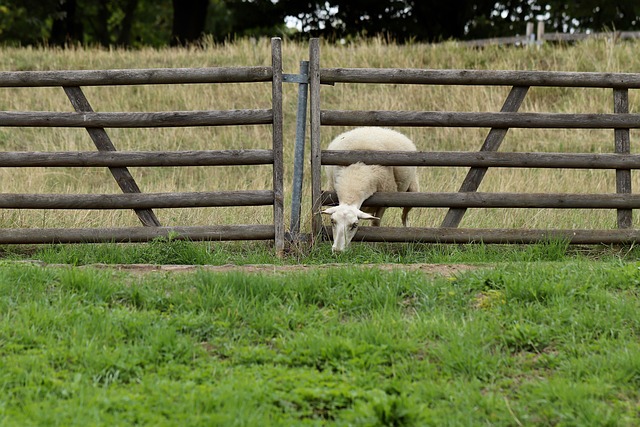In the pursuit of sustainable living, New Bedford, MA residents are increasingly turning to eco-friendly fencing materials. This article explores the diverse options available in the region, delving into their benefits that range from reducing environmental impact to enhancing property aesthetics and values. By examining popular choices and long-term savings, homeowners can make informed decisions that contribute to a greener New Bedford while enjoying the beauty and durability of sustainable fencing solutions.
- Exploring Eco-Friendly Fencing Options in New Bedford
- Benefits of Sustainable Fencing Materials
- Popular Eco-Friendly Fencing Choices for MA Properties
- Long-Term Savings & Environmental Impact
Exploring Eco-Friendly Fencing Options in New Bedford
New Bedford, MA residents increasingly seek eco-friendly fencing options, aligning with a global shift towards sustainable living. This trend reflects a growing awareness of environmental conservation and the desire to minimize the ecological footprint. Fortunately, the market offers diverse materials that not only cater to aesthetic preferences but also contribute to a greener planet.
Among these, natural woods like cedar and bamboo stand out for their durability and beauty. Recycled plastic and metal also find applications, transforming waste into robust fencing solutions. Each material carries unique benefits—from enhanced resistance to rot for wood to long-lasting strength in recycled plastics—that cater to various landscapes and preferences. This exploration of eco-friendly choices empowers New Bedford residents to make informed decisions that balance functionality with environmental stewardship.
Benefits of Sustainable Fencing Materials
In New Bedford, MA, the choice of fencing materials can significantly impact both the aesthetics and environmental health of a neighborhood. Sustainable fencing options offer numerous benefits that go beyond their visual appeal. Eco-friendly materials like recycled plastic, bamboo, or wood from certified sustainable sources not only reduce the carbon footprint but also minimize pollution and waste. These materials are often durable, low-maintenance, and long-lasting, making them a smart investment for homeowners and local landscapes.
Additionally, these sustainable options contribute to biodiversity by providing habitats for local wildlife and helping to preserve natural resources. They can also enhance the overall value of properties, as more and more buyers prioritize environmentally conscious choices. By opting for eco-friendly fencing, New Bedford residents can create beautiful, functional barriers while supporting a greener, healthier community.
Popular Eco-Friendly Fencing Choices for MA Properties
In New Bedford, Massachusetts, homeowners seeking eco-friendly fencing options have a variety of sustainable materials to choose from. One popular choice is bamboo fences, known for their rapid growth and strength. Bamboo fencing not only adds an aesthetic appeal to properties but also serves as a natural barrier against intruders. Another preferred option is recycled plastic fences, made from post-consumer waste like plastic bottles. These fences are durable, low-maintenance, and offer excellent resistance to rot and corrosion.
Wood-plastic composite (WPC) fencing is yet another green alternative that combines the strength of wood with the durability of plastic. WPC fences require minimal upkeep, are resistant to rotting and insect damage, and can mimic the look of traditional wood fencing. Additionally, these materials often come from sustainable sources, further reducing their environmental impact. For a more natural look, vegetable-tanned leather or plant-based fiber fences provide both aesthetic appeal and ecological benefits, making them ideal choices for eco-conscious homeowners in New Bedford.
Long-Term Savings & Environmental Impact
Eco-friendly fencing materials offer more than just an aesthetically pleasing alternative to traditional options; they provide significant long-term savings and environmental benefits. These materials, often made from sustainable resources like recycled plastic, bamboo, or organic fibers, are designed to withstand harsh weather conditions, reducing the need for frequent replacements. This longevity translates into lower maintenance costs and less waste ending up in landfills over time.
Moreover, opting for eco-friendly fencing contributes to a reduced environmental footprint. Traditional fencing materials can take a heavy toll on the planet due to their production methods and limited lifespans. In contrast, sustainable options minimize deforestation, water usage, and energy consumption associated with manufacturing. By choosing these materials, residents of New Bedford, MA, not only enhance the beauty of their properties but also play an active role in preserving the local ecosystem for future generations.
